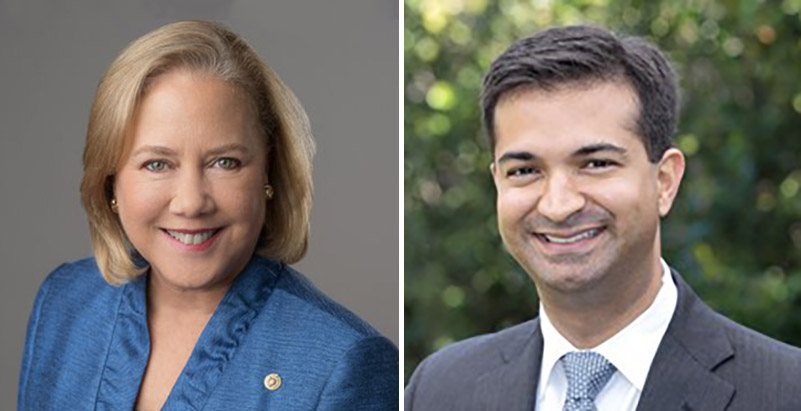Landrieu & Curbelo: Biden Administration Attack on Public Charter Schools Will Harm the Families and Students Who Need Them Most

Help fund stories like this. Donate now!
As former members of Congress on opposite sides of the aisle, we have disagreed on many things, but one issue keeps us and many of our colleagues connected: ensuring that every child has access to a high-quality public education.
There are serious issues in public education right now, like staffing shortages and pandemic-related learning loss. But rather than focusing on these pressing issues, the Biden administration is creating a whole new set of problems by launching a sneak attack on public charter schools.
Undermining these unique public schools will not fix what ails the nation’s school system. It will only cause more harm. Yet that seems to be the misguided intent of proposed rules and regulations issued by the U.S. Department of Education that would make it tougher to access grants from the federal Charter Schools Program. Charter schools already adhere to financial accountability standards and transparency that is at least equal to, if not higher than, the standards of local district-run schools.
The new regulations — which are in no way tied to student achievement or academic innovation — would disproportionately harm single-site charter schools and those that serve Black, Hispanic and Native students.
The changes put the financial interests of school districts above students’ needs and ignore the demand from families to create more pathways for public education.
It’s unclear why the administration would try to limit charter school opportunities, beyond a mistaken belief that expansion somehow hurts the very students clamoring for an opportunity to attend one.
More than 3.5 million children are enrolled in at least 7,500 public charter schools, and about half of these schools received federal charter program grants. Choking off access to these funds by layering on burdensome, duplicative and conflicting requirements ultimately means locking students out of options for high-quality public education.
The proposal would include a community impact analysis to show there is “demand” for the school and override state charter laws with a new federal definition of “community impact”: Charter schools should exist only to serve “extra” students that exceed district capacity. Given that every state in the nation saw a decline in district school enrollment last year, this proposed guideline alone is impossible to meet.
The new rules would also require grant applicants to show how they would create racially and socioeconomically diverse schools, and put up roadblocks to culturally affirming schools — particularly those for Indigenous students, which the guidelines assume to be inherently wrong. Charter schools strive for racially and socioeconomically diverse environments, but this ideal should not supersede the primary goal of ensuring that children with the greatest need have access to great schools.
Under this proposed system, the high-performing Fortune School in California, for example, would be less competitive for a grant because most of its students are Black. The school’s founder, Dr. Margaret Fortune, is a passionate educator who is unapologetically committed to providing an exceptional, culturally affirming education to all students. Charter School Program grants helped her school expand to serve thousands more children.
Grant applicants also would have to measure an “unmet need” — and that’s simply not how charters work. Filling an unmet need is not about finding an empty seat in an underperforming classroom. The unmet need could be for cultural sensitivity, diverse teachers or a flexible curriculum.
Perhaps most puzzling, the new proposed rules would require a school to have secured a building before applying for a planning grant. Had these rules been in place, a school like i3 Academy in Birmingham, Alabama, would probably never have opened. This charter school received a $1.5 million program planning grant, was able to break ground on a new building during the pandemic and opened last fall. Already, there are more students who want to attend the school than there are available seats. Most are students of color, and the school provides at least one technology device to each and every student.
None of the bureaucratic hurdles in these proposed rules are tied to what really matters: fostering educational innovation and academic achievement.
Instead, the rules are meant to protect a system that feels threatened by families who are voting with their feet and choosing a school that best meets their children’s needs. The Biden administration has offered no explanation for how these burdensome and bureaucratic layers would better serve the most vulnerable students and families.
In our respective home states, charter schools have been a bridge to bipartisanship. Everyone deserves high-quality public schools that are responsive to the communities they serve. It is shameful to diminish and discriminate against lower-income families who only want more choices for their children’s education. Educational choice should not be just for the rich and powerful.
Mary Landrieu is a former Democratic senator from Louisiana. Carlos Curbelo is a former Republican member of the U.S. House of Representatives from Florida.
Help fund stories like this. Donate now!

;)